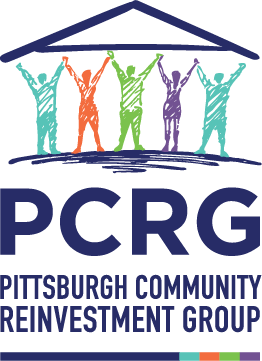Big Progress on the Pittsburgh Land Bank
In a significant step forward for neighborhood revitalization, Pittsburgh City Council has approved a new intergovernmental taxing body agreement for the Pittsburgh Land Bank (PLB) with an 8-1 vote. This agreement formalizes collaboration between the city, Allegheny County, Pittsburgh Public Schools (PPS), and the PLB — enabling the clearing of tax liens and expediting property transfers for community-driven redevelopment projects.
This step is pivotal in advancing the PLB’s mission to repurpose vacant, abandoned, and tax-delinquent properties into affordable housing, greenspace, small business opportunities, and other community assets. By streamlining the process of extinguishing tax delinquencies, the PLB can more effectively prepare properties for reuse and development.
Approval is still needed from Allegheny County and the Pittsburgh School Board before the agreement can take effect. We will keep you updated as these bodies take final action on the agreement.
Every Day Without a Budget Costs Communities
Pennsylvania is now three months into a budget stalemate, and the impacts are landing hardest on schools and municipalities. With no budget in place, local governments and school districts are being forced to borrow money —taking out lines of credit and short-term loans — just to keep the lights on, pay staff, and deliver basic essential services.
Every dollar spent on interest is a dollar diverted from classrooms, affordable housing, community investment, and neighborhood services. This is not fiscal responsibility — it is a failure of leadership in Harrisburg. Communities should not have to mortgage their futures because lawmakers can’t perform their most basic duty: pass a budget. PCRG’s 2025 Policy Agenda calls for stable, equitable funding that strengthens housing, infrastructure, and neighborhood investment. A timely, responsible budget is essential to achieving these goals. We urge state leaders to end the gridlock and put communities first.
Congress Gridlocked, Communities Left Waiting
As Pennsylvania grapples with a state budget crisis, Washington is in a federal government shutdown. The fight centers on health care funding:
Democrats are demanding that any agreement restore Medicaid cuts and extend Affordable Care Act subsidies as a stipulation to supporting a continuing resolution, which is essentially a short-term budget.
Republicans, who currently control the House, Senate and White House, argue Democrats want to fund health care for undocumented immigrants and have passed a short-term funding bill without these protections.
Senate rules require 60 votes to advance spending bills, giving Democrats leverage to block measures.
If negotiations fail, the impact will be severe:
Federal employees and contractors face furloughs.
Housing and community development programs will experience delays.
Families who rely on social safety net programs may see service disruptions.
Local governments and nonprofit organizations — already stretched thin — will be forced to fill the gaps, straining limited community resources.
Shutdowns aren’t just political theatre: they weaken public confidence and force communities to bear the cost of partisan gridlock.

